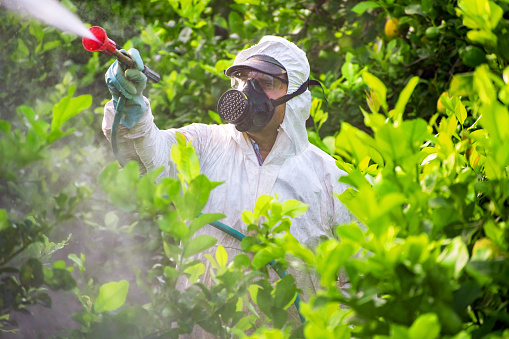
The average American now has 116 synthetic compounds in his or her body, according to the Centers for Disease Control and Prevention in Atlanta. These compounds include dioxin, polycyclic aromatic hydrocarbons and organochlorine pesticides. There are about 75,000 different chemicals produced in the United States each year, 3,000 of which are produced in quantities greater than 50,000 tons each year. Chemicals that were banned decades ago persist in the soil, air and water. DDT, banned 34 years ago, still exists in detectable levels in many people. It would be interesting to see the result if the CDC tested for all of these chemicals.
Recent studies have detected pesticides, plastics and polymers in umbilical cord blood, in the placenta, in human milk and in the bloodstreams and body fat of infants. These substances may have far reaching effects on our health. One toxin threatening mothers and children is mercury. Mercury has been linked to breast cancer, autism and attention deficit disorder. In 2002, a study found that nearly 15% of American women of reproductive age had enough mercury in their blood to endanger a developing fetus.
In 1993, Mary Wolff, an associate professor at New York's Mount Sinai Medical Center, published a paper in the Journal of the National Cancer Institute, indicating that exposure to certain chemicals may play a role in breast cancer. Women with high blood levels of DDE (a compound formed when DDT breaks down), had risk of developing breast cancer that was four times higher than women with low levels of DDE. DDT was banned in the US in the 1970s. It can mimic the hormone estrogen and is a known to disrupt the endocrine system. Research published in the Journal of Nutritional and Environmental Medicine states that exposure to small amounts of certain chemicals can increase the risk of developing cancer - particularly for infants and young adults. A study on rats published in the Dec. 6, 2006 online edition of Reproductive Toxicology found that exposure to biphenol A during fetal life may cause breast cancer in adult women.
An article appearing in Food and Chemical Toxicology, (1992; 30 (4):343-348) looked at the relationship between certain chemicals and Parkinson's disease. Parkinson-like symptoms can occur from exposure to certain toxins, such as manganese and carbon monoxide. Drug s like phenothiazines and butyrophenones may cause symptoms similar to Parkinson's. The chemical 1-methyl-4- phenyl-1,2,3 6-tetrahydropyridine (MPTP) causes symptoms similar to Parkinson's disease. This drug has been used as a model in studying Parkinson's disease. Paraquat has been studied since it has a similar structure to MPP+. There is some evidence that Parkinson's disease can be induced by pesticides. There is a correlation between early onset Parkinson's disease in people who drank well water in childhood. There also seems to be a relationship between Parkinson's disease and working in a paper mill or in an orchard. The author suggests that there may be a relationship between the chemicals used in orchards and paper mills that may be linked to Parkinson's disease. Also, environmental factors play a role in the disease, although there may be other factors.
Toxic World By: Dr. Jeff Senechal DC CFMP
https://www.youtube.com/watch?v=SGKqglKH1_E&list=UUXV1erzvdUmHDusYfDqgntg